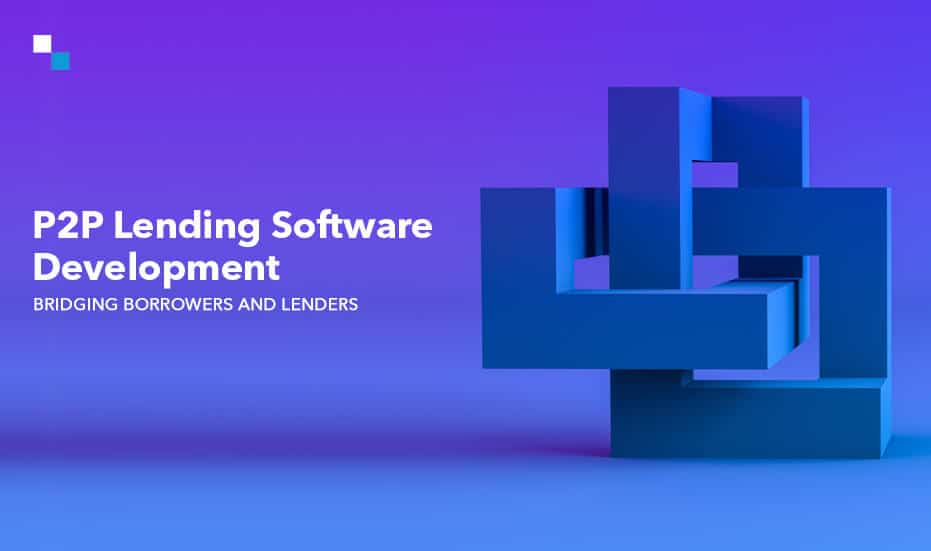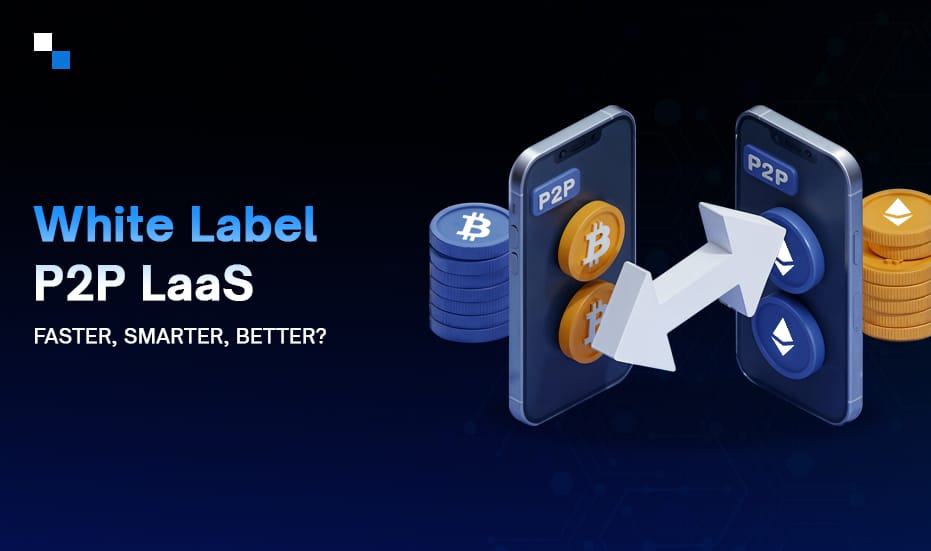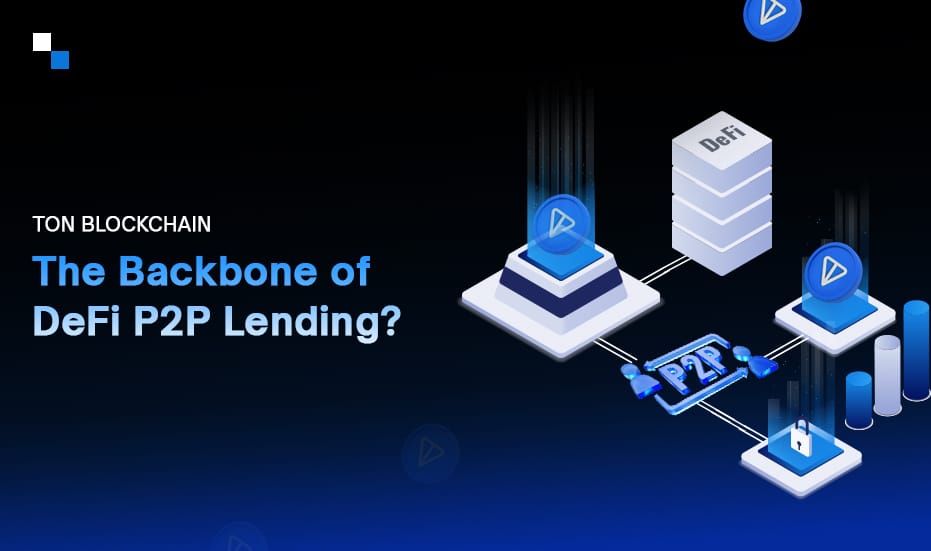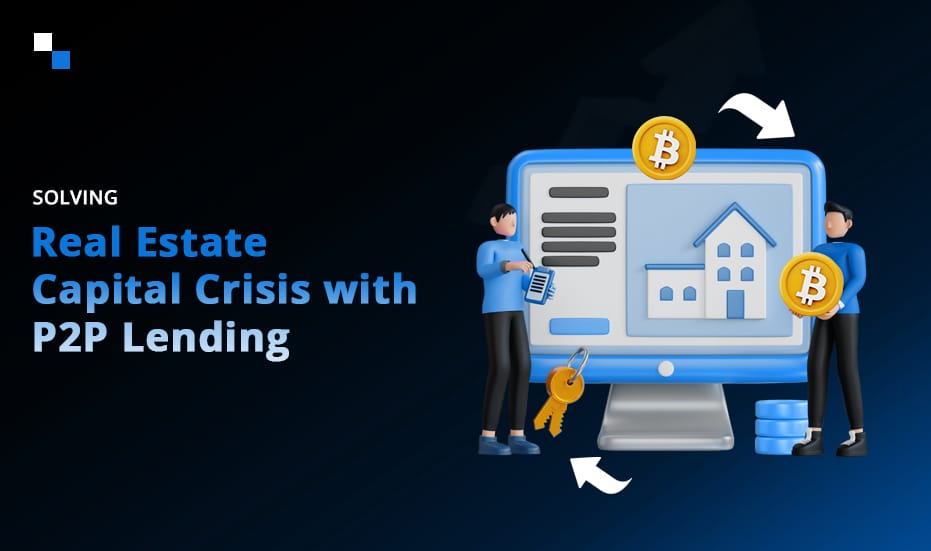
How Can Play to Earn Metaverse Games Catapult Your Business Profits?
January 9, 2024
How Stablecoin Development Is Transforming The Healthcare Industry in 2024?
January 10, 2024Peer-to-peer (P2P) lending platforms leverage blockchain technology to connect borrowers directly with lenders while eliminating the need for traditional financial intermediaries. This decentralized approach offers benefits like easy accessibility, lower fees, and increased efficiency in loan processing. Owing to these benefits, the popularity of peer to peer lending software has increased significantly. Businesses are leveraging different blockchains to build their P2P lending platforms.
If you are also planning to build your peer-to-peer lending platform, here are the popular blockchains you can consider for the development of the platform.
1. Ethereum (ETH): The Pioneer Smart Contract Platform
Ethereum, known for introducing smart contracts to the blockchain landscape, remains a popular choice for building P2P lending software. Its ability to execute self-executing smart contracts without the need for any intermediaries enables trust and transparency.
- Smart Contracts: Smart contracts built on the Ethereum blockchain facilitate the creation of lending agreements and automating the lending process. Borrowers and lenders can define terms, execute agreements, and manage repayments seamlessly.
- Decentralized Finance (DeFi) Ecosystem: Ethereum is at the forefront of the DeFi development, and it hosts multiple decentralized applications (DApps) that enable the development of a robust P2P lending ecosystem.
- ERC-20 Tokens: Ethereum’s ERC-20 token creation standard enables the creation of custom tokens representing loans. This standardization enhances interoperability and facilitates the trading of tokens on various decentralized exchanges.
2. Binance Smart Chain (BSC): Speed and Low Transaction Costs
Binance Smart Chain has gained popularity for its high throughput and lower transaction costs. These benefits make it an attractive choice for building peer to peer lending software that seeks efficiency and cost-effectiveness.
- Compatibility with Ethereum: BSC is fully compatible with the Ethereum Virtual Machine (EVM), which facilitates the porting of Ethereum-based applications to Binance Smart Chain. This interoperability leads to cross-chain functionalities.
- Fast Confirmation Times: The shorter block confirmation times of Binance Smart Chain contribute to faster transaction processing. It reduces the time required for the execution of loan agreements.
- BEP-20 Tokens: Similar to Ethereum’s ERC-20 tokens, Binance Smart Chain supports the BEP-20 token creation standard that helps tokenize loans and enhance the overall functionality of P2P lending platforms.
3. Polkadot: Facilitating Interoperability and Scalability
Polkadot was designed to facilitate interoperability between different blockchains. It makes a great option for the development of P2P lending software looking for a scalable and connected ecosystem.
- Cross-Chain Compatibility: The architecture of Polkadot allows for seamless communication between different blockchains within its network. This interoperability enables P2P lending platforms to leverage the strengths of multiple chains and build an interconnected lending environment.
- Scalability: Polkadot offers a solution to address scalability issues. Peer to peer lending software built on Polkadot can handle a higher volume of transactions without compromising speed or efficiency.
- Customizable Blockchains: Polkadot’s Substrate framework allows for the creation of customizable blockchains tailored to specific business needs. It is great for building P2P lending platforms with unique features and functionalities.
4. Solana: High Throughput and Low Latency
Solana gained popularity for its high throughput and low transaction costs. It is a great choice for building P2P lending software aiming for speed and efficiency.
- Fast Transaction Confirmation: Solana works on Proof of History (PoH) consensus mechanism, which contributes to fast transaction confirmation times. This feature is crucial for P2P lending platforms where timely execution of smart contracts is crucial.
- Low Transaction Costs: Solana aims to minimize transaction costs, making it a cost-efficient choice for users involved in lending and borrowing activities.
- Scalability: Solana emphasizes scalability, which means that P2P lending software can handle a growing user base and an increasing number of transactions without compromising on performance.
5. Tezos: On-Chain Governance and Security
Tezos is known for its on-chain governance model and emphasis on security. It provides a robust foundation for building secure and community-driven peer to peer lending software.
- On-Chain Governance: Tezos incorporates a self-amending mechanism, which allows stakeholders to vote on proposed protocol upgrades. It contributes to continuous improvement and evolution of the blockchain based on the changing needs.
- Security: Tezos employs a formal verification process that enhances the security and reliability of smart contracts.
- Liquid Proof-of-Stake (LPoS): Tezos utilizes a liquid proof-of-stake consensus algorithm, promoting decentralization and incentivizing token holders to participate in the validation process.
6. Cardano: Sustainability and Scalability
Cardano, with its focus on sustainability and scalability, lays a strong foundation for building P2P lending software that prioritizes long-term viability.
- Sustainability: Cardano has a layered architecture that separates the ledger and computation layers. It enhances sustainability by allowing for easier protocol upgrades without affecting the stability of the network.
- Scalability: P2P lending platforms built on Cardano can handle increased transaction volumes while ensuring efficiency.
- Interoperability: Cardano’s commitment to interoperability ensures compatibility with other blockchains. It enables collaboration between different P2P lending ecosystems.
The choice of blockchain to develop peer to peer lending software depends on factors such as speed, cost-effectiveness, security, and interoperability. Each blockchain presents unique advantages, and businesses must carefully consider their specific requirements and objectives to make the right choice.
Why Antier for P2P Lending Software Development?
We build world-class peer to peer lending platform software fortified with enterprise-grade security and performance. In addition to development, we offer business-oriented consultation services – so if you have any doubt about the technology you should use for the development of your platform, our subject matter experts assist you at every step.
Apart from building custom P2P lending software, we provide a white label lending platform reinforced with market-leading features, such as smart contract-based escrow system, geography-based KYC and AML verification process, secure wallet, bank-grade admin panel, and more.
Schedule a free demo of our white label peer to peer lending software or discuss your needs for a customized platform.



